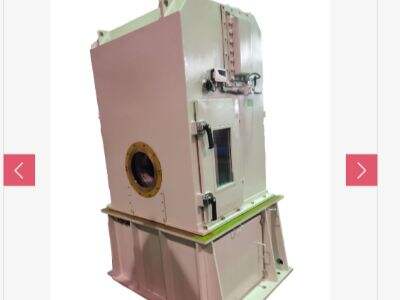Kuşkusuz, soğuk kış aylarında evlerin ve binaların rahatısıcısı sıcaklığı sağlamak için ısıtma sistemleri oldukça önemli dir. Hava soğuduğunda insanlar içerde sıcak ve rahat olmayı ister. Isı değiştiriciler, birçok insan için alanları ısıtmada büyük bir rol oynar. Isı değiştiriciler: Bunlar, su veya hava gibi bir akışkanından diğerine ısı aktarmak için kullanılan özel cihazlardır. Odaların içinde daha yüksek sıcaklığın korunmasına yardımcı olur. Plaka ısı değiştiricileri ve plaka fin-tube ısı değiştiricileri, insanlar tarafından kullanılan en yaygın ısı değiştirici türlerinden bazılarıdır.
Bir plakalı ısı değiştiriciyi hayal etmek için tek yol, birbirinin üzerindeki ince metal plakaları görselleştirmektir. Bu metal sayfalar, su veya madde geçebileceği, küçültülmüş kanallarla yapılmıştır. Sıvılar bu kanalları geçerken bir sıvıdan diğerine ısı aktarılır. Bu da bir bölgenin ısınmasını sağlayabilecek çok verimli bir yöntemdir.
Diğer yandan, bir plaka fişek-tüp ısı değiştirici biraz farklıdır. Yan düzlem türleri bir tübe bağlıdır. Tüp genellikle metali veya plastik malzemelerden yapılır ve su veya maddenin taşındığı ortamı içerir. Fişeklerin neden olması gerekiyor ise, ısı transferinin tüpte bulunan sıvıdan fişekler çevresindeki sıvıya yapılabilmesi içindir. Bu tasarım, bir sıvıdan diğerine etkili bir şekilde ısı aktarımını mümkün kılan yüzey alanını artırır.
Plaka veya Plaka Fincan-Tube Isı Değiştirici: Hangisini Seçmelisiniz?
Bir plaka ısı değiştirici mi yoksa bir plaka fincan-tube ısı değiştirici mi kullanacağınız konusunda kesin bir cevap yok. Her biri avantaj ve dezavantajları var. Farkları bilmek, ihtiyaçlarınız için doğru olanı seçmenize yardımcı olur.
Genellikle kompakt boyutta plaka ısı değiştiricilerinde bulunur. Bu, onların temizlenmesinin çok daha kolay olması nedeniyle, daha dar alanlara yerleştirilmesi açısından daha faydalıdır. Onları daha az parçadan oluşmaları nedeniyle bakım yapmak daha kolaydır. Ancak bazı diğerlerinden daha fazla sıcaklıkta iyi çalışmayabilirler.
Plaka fincan-tube ısı değiştiricileri daha büyük boyutta olup yüksek sıcaklıklara karşı daha dayanıklıdırlar. Ayrıca ısıyı daha verimli bir şekilde değiştirirler, bu da bölgeleri daha hızlı ısınmasını sağlar. Ancak dezavantajı, genellikle daha karmaşık olmaları, temizlenmesi ve bakımı zor olması ve birçok durumda uzun vadede satın alma ve işletme maliyetlerinin daha yüksek olmasıdır.
Farkları Anlama
Bu iki tür ısıl değiştirici temel olarak bir sıvıdan diğer sıvıya ısı aktarım şekliyle birbirlerinden farklılaşır. Bir plakalı ısıl değiştiricide, sıkıştırılmış metal plakalar aracılığıyla ısı değişimi gerçekleşir. Bu düzen, etkili ısı transferi sağlar. Diğer yandan, plaka findeli-boru ısıl değiştiricide, borulara eklenen fınklar ısı değişimini sağlamak için kullanılır. Bunlar aynı zamanda ısı transferi için daha büyük bir yüzey alanı sağlayarak verimliliği artırır.
İkisi arasındaki başka bir fark boyut ve karmaşıklıktır. Plakalı ısıl değiştiriciler genellikle küçük ve basit bir tasarıma sahiptir. Bu nedenle kurulum ve bakım daha kolaydır. Karşılık olarak, plaka findeli-boru ısıl değiştiriciler daha büyük ve daha karmaşık bir tasarıma sahiptir. Daha fazla parça içeriyorlar, bu da bakımı biraz daha zor hale getiriyor.
Bakım ve Masraflar
Destek ve maliyetler açısından, plaka sıcaklık değiştiricileri genellikle diğerleri karşısında avantajlidir. Alışverişinde daha ucuz olmaları ve bakımında daha az karmaşık olmaları yayg ortadadır. Daha az parçadan oluştuğundan, bunlar daha hızlı bir şekilde kullanılabilir hale getirilebilir. Bu da işlevsel bir durumda korunması için daha az zaman ve enerji gerektirmesi anlamına gelir ki, bu da uzun vadede daha düşük maliyetlere neden olur.
Yandanakli, plaka fın-tube ısıl değiştiricileri daha karmaşık olabilir ve yararlanmak için daha fazla masrafa neden olabilir. Daha fazla parçaya sahip olmaları ve sıklıkla temizlenmesinin daha zor olması nedeniyle, üst düzeyde korunması için genellikle daha fazla zaman ve para harcamaları gerekir. Bu, uzun vadede onları pahalı bir seçenek haline getirebilir.


